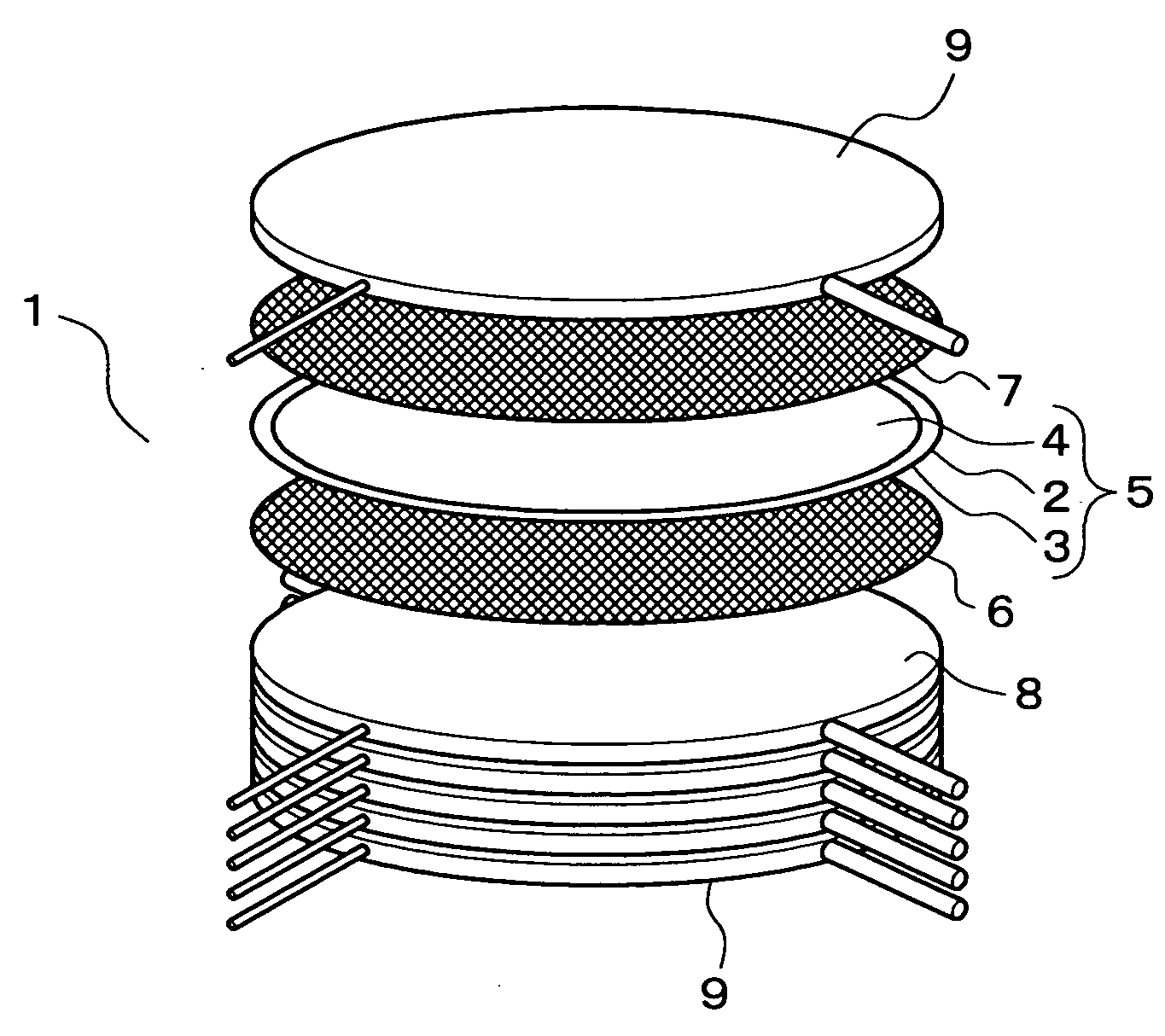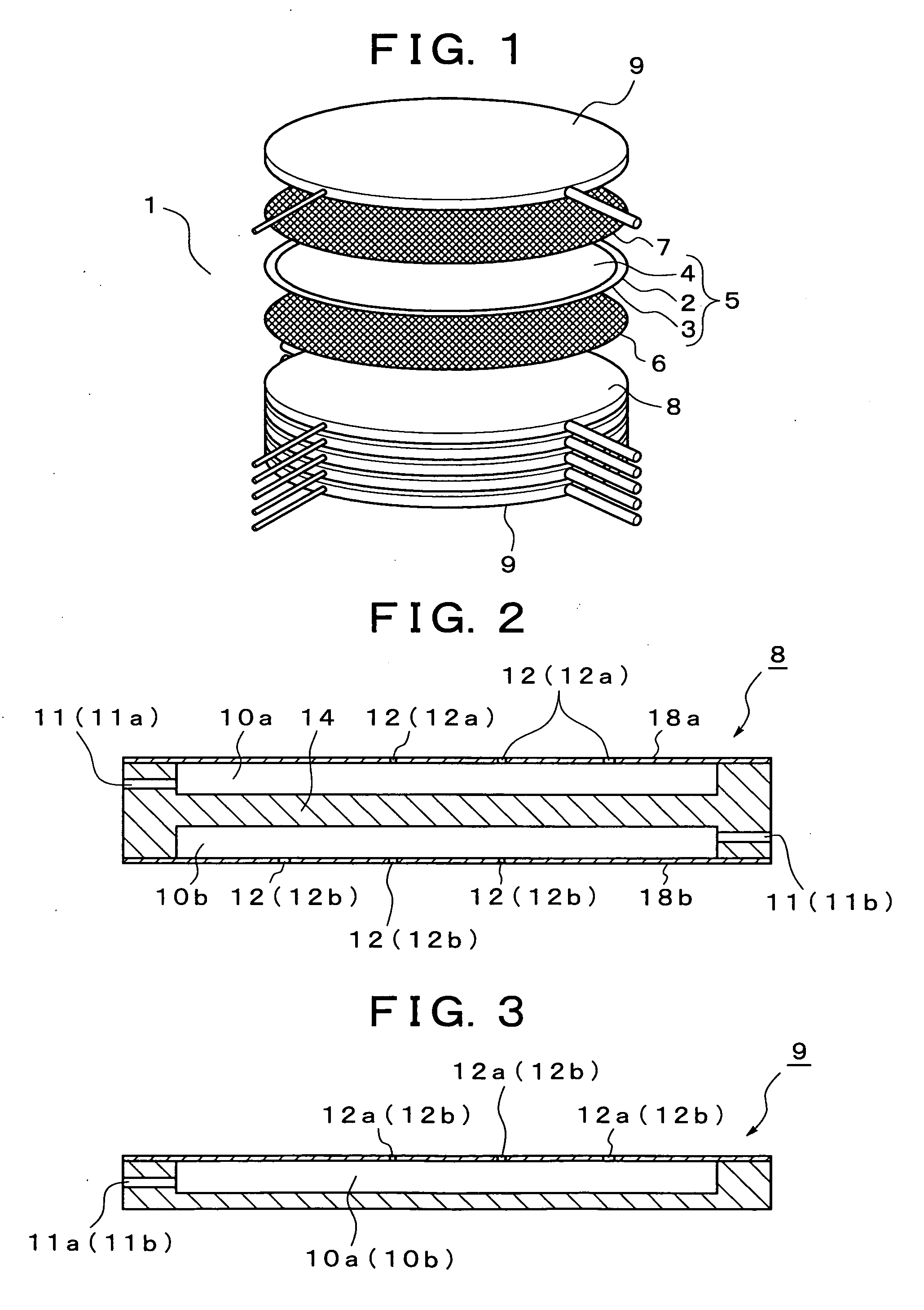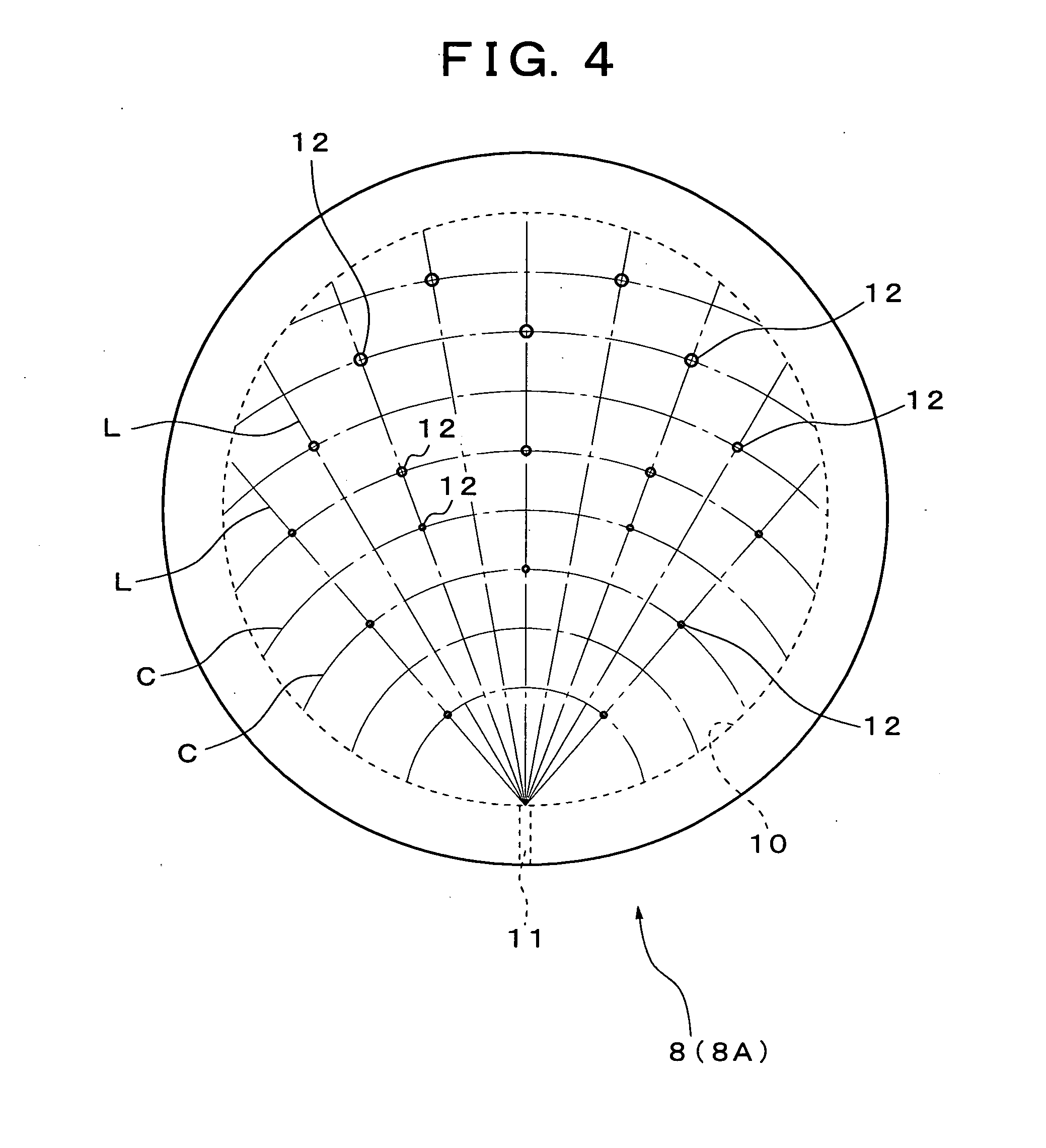Separator for fuel cell, method for producing separator, and solid oxide fuel cell
a technology of separator and fuel cell, which is applied in the direction of cell components, cell component details, electrochemical generators, etc., can solve the problems of power generation cell efficiency (output power density per unit area) being remarkably reduced, gradients to be formed, and damage to power generation cells, etc., to achieve the suppression of carburization deterioration of separator, the effect of improving the production efficiency of the separator and improving the carburizing resistan
- Summary
- Abstract
- Description
- Claims
- Application Information
AI Technical Summary
Benefits of technology
Problems solved by technology
Method used
Image
Examples
first embodiment
[0039]FIG. 1 shows a first embodiment of a solid oxide fuel cell according to the present invention, and reference numeral 1 in FIG. 1 denotes a fuel cell stack. As shown in FIG. 1, the fuel cell stack 1 has a constitution formed by laminating in order a power generation cell 5 in which a fuel electrode layer 3 and an air electrode layer 4 are arranged on both surfaces of a solid electrolyte layer 2, a fuel electrode current collector 6 on the outer side of the fuel electrode layer 3, an air electrode current collector 7 on the outer side of the air electrode layer 4, separators 8, (the uppermost and lowermost layer of which are formed as end plates 9), on the outer side of each of the current collectors 6, 7. In the fuel cell stack 1, a seal-less structure in which a gas leakage prevention seal is not particularly provided in the outer peripheral part of the power generation cell 5 is adopted.
[0040]Here, the solid electrolyte layer 2 is formed of stabilized zirconia (YSZ) doped wit...
second embodiment
[0053]FIG. 11 shows a second embodiment of the solid oxide fuel cell according to the present invention, in which the same components as those in the above described first embodiment are denoted by the same reference numerals and the explanation thereof is simplified.
[0054]The fuel cell stack 1 according to the present embodiment has a seal-less structure similar to the above described first embodiment, and has a constitution formed by laminating in order a power generation cell 5 in which a fuel electrode layer 3 and an air electrode layer 4 are arranged on both faces of a solid electrolyte layer 2, a fuel electrode current collector 6 on the outer side of the fuel electrode layer 3, an air electrode current collector 7 on the outer side of the air electrode layer 4, and separators 8 (the uppermost and lowermost layers of which are formed as end plates 9) on the outer side of each of the current collectors 6, 7.
[0055]The separator 8 has a function to electrically connect the power ...
PUM
| Property | Measurement | Unit |
|---|---|---|
| temperature | aaaaa | aaaaa |
| area | aaaaa | aaaaa |
| area | aaaaa | aaaaa |
Abstract
Description
Claims
Application Information
 Login to View More
Login to View More - R&D
- Intellectual Property
- Life Sciences
- Materials
- Tech Scout
- Unparalleled Data Quality
- Higher Quality Content
- 60% Fewer Hallucinations
Browse by: Latest US Patents, China's latest patents, Technical Efficacy Thesaurus, Application Domain, Technology Topic, Popular Technical Reports.
© 2025 PatSnap. All rights reserved.Legal|Privacy policy|Modern Slavery Act Transparency Statement|Sitemap|About US| Contact US: help@patsnap.com



